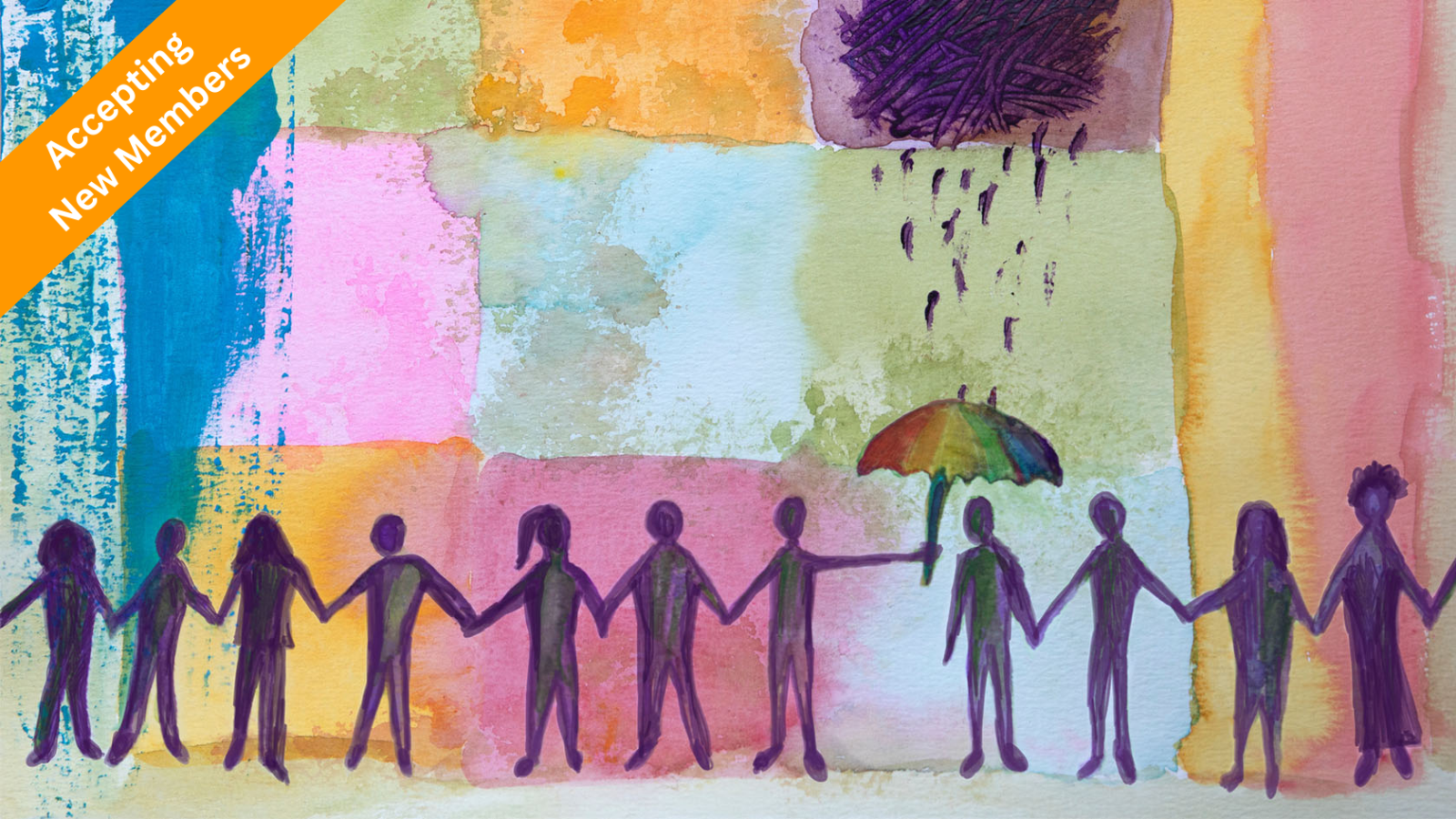Groups and Support Spaces
Groups offer a safe space for CUIMC students to share experiences, learn from others, and deepen self-awareness on a variety of topics such as relationships, transitions, loneliness, anxiety, trauma, and identity. Please see below for a current listing of our group offerings. Click on the groups listed for more information, links to the group pages, and contact information for group leaders. Please get in touch with the group leader if you are interested in learning more about the group or are interested in joining.
Note: Please note that while the expectation is that participants maintain privacy, we cannot guarantee confidentiality.
Click on the groups below for more information, links to the group pages, and contact information.
Groups Accepting New Members:
Connecting Through Loss
A support space for CUIMC students who have experienced the loss of a loved one. Topics for discussion may include reluctance to burden others with feelings of grief and isolation, managing the demands of a graduate program while grieving, experiencing intense feelings of missing the loved one, and feeling isolated.
Visit the Connecting Through Loss group page or contact Mara Eilenberg, LCSW at mee15@cumc.columbia.edu
Creating Fulfilling Relationships
This group is open to students who are interested in learning more about their relationships in order to create healthy, meaningful connections. This group will be a safe space to process changes in relationships, explore challenges, and gain insight in order to improve communication, establish healthy boundaries, and resolve conflicts. Participants will gain support, develop self-awareness, and improve their interpersonal effectiveness.
Visit the Creating Fulfilling Relationships group page or contact Cecile de Lardemelle, Psy.D., at cd3380@cumc.columbia.edu
First Gen
A support space offering a community for CUIMC students who identify as the first member in their family to pursue higher education in the U.S. Conversation topics may include being away from family, family expectations/pressures, generational/cultural differences, fear of failure/disappointment, difficulties with sense of belonging, financial stressors, and impostor phenomenon.
Visit the First Gen group page or contact Maya Fukuda, LCSW at mf3262@cumc.columbia.edu
LGBTQIA2S+ Support Group
The LGBTQIA2S+ (Lesbian, Gay, Bisexual, Transgender, Queer/Questioning, Intersex, Asexual or Agender, Two-Spirit) Group is a support space for CUIMC students who identify as a member of the LGBTQIA2S+ community. Topics may include shaping identity, experiences of bias, microaggressions, and discrimination, and interpersonal dynamics. Participants will have the opportunity to come together in a supportive environment to share, gain insight into their experiences, and learn from and with each other.
Visit the LGBTQIA2S+ page or contact Colin Meng, Psy.D., LCSW at cm4403@cumc.columbia.edu
Overcoming Imposter Phenomenon and Increasing Self-Confidence
This group will offer a safe space for students to examine tendencies for overthinking, perfectionism, and self-doubt. Students will come together to boost their confidence, own their successes, and cultivate their agency.
Visit the Overcoming Imposter Phenomenon group page or contact Heather Holtman, Ed.D, at hh2796@cumc.columbia.edu
Relationship with Food and Body
This group offers a safe space for students who are impacted by an eating disorder, disordered eating, or those who are seeking support in recovery. Students will explore their current patterns, discuss challenges, and consider opportunities for change. Participants will discuss the intersectionality of self-esteem, body image, and relationships as they relate to achieving recovery. Students will be provided with tools to assist in their recovery including identification of coping strategies.
Visit the Relationship with Food and Body group page or contact Heather Holtman, Ed.D, at hh2796@cumc.columbia.edu
The Following Groups Are Full for Now:
Healing and Empowerment: Support Group for Trauma Survivors
This group is designed to provide support to survivors of trauma in a safe and confidential space. The group will provide opportunities for survivors to support one another, develop strategies to cope, discuss the effects of trauma, and practice self-care.
For more Information, contact Jannett Santana, LCSW, at js6172@cumc.columbia.edu
The Following Groups Are Not Running This Semester:
Navigating Uncertainty
Almost all of us experience some level of discomfort from uncertainty, unpredictable events, and circumstances beyond our control. This can be especially challenging when in a new environment, such as graduate school. Learn tools that can help you navigate these moments. This group will meet weekly to explore what makes uncertainty so uncomfortable and discuss strategies to increase flexibility, adjust to change, and cope.
For more information, contact Jannett Santana, LCSW at js6172@cumc.columbia.edu
Transitions: Leaning into Change and Growth
Attending graduate school is a significant life transition that is often accompanied by a variety of new and challenging experiences. This group offers peer support to students navigating adjustments that come with the graduate experience like moving to a new city/country, homesickness, imposter syndrome, difficulty fitting in, and/or living with roommates. Students will have the opportunity to share their experiences with transitions, current challenges or stressors, strategies to cope, and ways to access support.
For more information, contact Jannett Santana, LCSW at js6172@cumc.columbia.edu
Thriving at the Margins
Accordion content...Underrepresented communities experience many forms of exclusion that make life challenging, including in higher education settings. Thriving at the Margins is a support space for CUIMC students who belong to such identity groups, including Black, Indigenous, Asian, AMENA, Latinx, LGBTQ+, low-income students, students belonging to minority faith groups, and students with disabilities. Topics such as discrimination, bias, prejudices, and structural/systemic racism will be discussed. Participants will have the opportunity to come together to share and gain insight into their experiences, learn from and with each other, and move towards radical healing.
For more information, contact Colin Meng, Psy.D., LCSW, at cm4403@cumc.columbia.edu.









